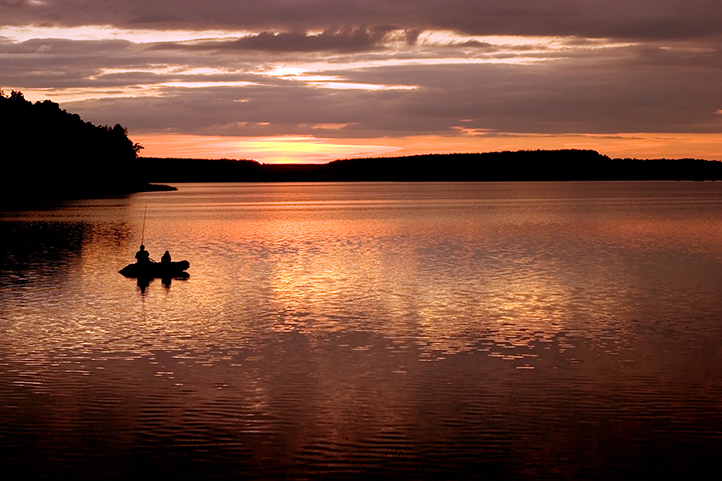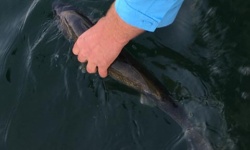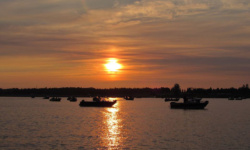by: Tim Lesmeister
Many top professional anglers will say the fish are always biting, you just have to take the right steps to trigger a bite. I’ve found this true, because when I covered tournament circuits, even when fishing conditions were extremely poor, some anglers put together the right pattern and caught limits.
That said that some days on lakes, rivers, and reservoirs are just downright tough. Cold fronts, rising water levels, bug hatches, a well-developed forage base, and plenty of other factors can create a situation where fish are not eager to bite. In situations like that, it takes some dogged persistence and determination to catch fish. Let’s look at how the pros handle a tough bite.
I was with Freshwater Fishing Hall of Famer Gary Roach on the Winnipeg River system where he was preparing for an upcoming tournament. It’s hard to believe the bite can be tough in Canada, but a bug hatch and some heavy rain really shut down the walleyes. Roach decided his game plan called for the ultimate in finesse, but first he had to find the fish.
Roach strained the water with a fine-tooth comb using his sonar to locate tiny pods of walleyes hugging the bottom, then he marked them with his GPS. When the fish become lethargic, they lay tight to bottom and become finicky, he explained.
His setup was a live-bait rig with a 1/4-ounce sinker and a 12-inch snell. He used floating marker buoys positioned to surround the little clumps of fish and then he would hover over them and wait out the bite. He had to use extreme patience as his method would generate one bite every 40 minutes or so, but he caught fish and won the event.
Josh Huff is a guide on Lake Superior. We both love to catch the huge northern pike in the bays off the main lake, but some days even those pike ignore our baits. That’s when the anchors come out, the big bobbers go on, and it’s sucker time.
Big cabbage beds in Chequamegon Bay contain some monster northern pike. One day Huff and I were on the Pamida Hump, a sand-topped sunken island surrounded by thick cabbage. After working that hump with crankbaits for two hours without a bite we anchored. Ten minutes after the floats hit the water we were reeling in pike.
The slow approach is not always the answer during a tough bite. My fishing buddy, Stacy Barbour, would take a lipless crankbait and burn it over the tops of the weeds when the bass fishing was tough, even though he was a genius with a plastic worm. He wanted to trigger reaction bites. It worked.
So there will be great days on the water and some awful ones. On those days when the fishing stinks, persistence and determination are the two attributes that will bring you success.






